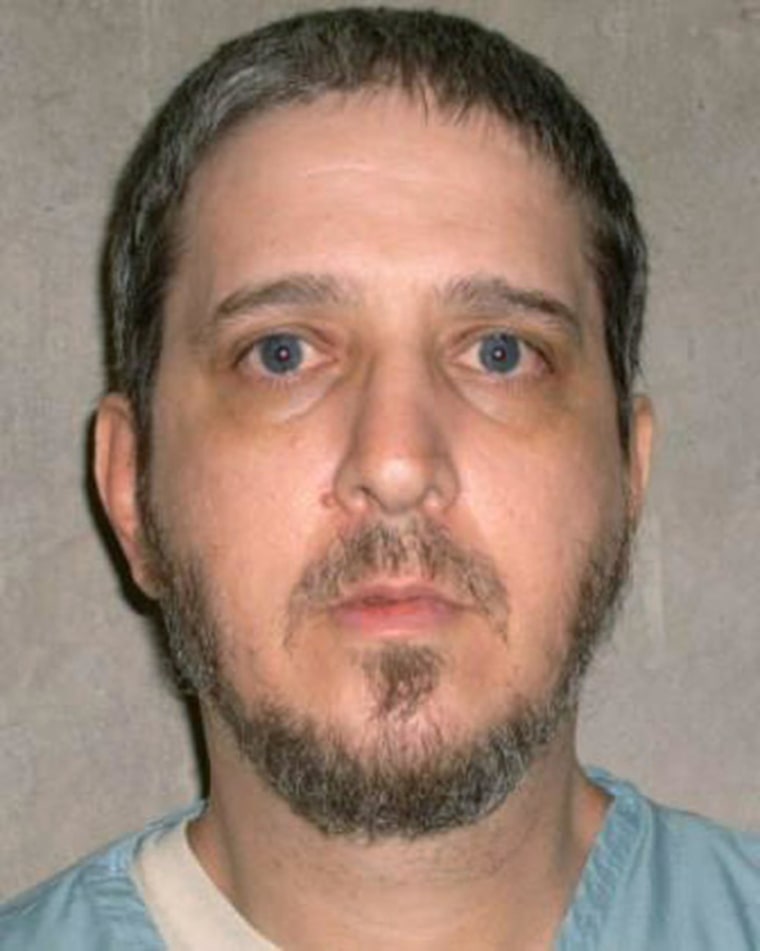Supreme Court justices clashed Wednesday over whether a lethal-injection cocktail used by several states is too painful — with one likening it to being burned alive, and another saying "guerrilla war" is being waged against the death penalty.
The heated arguments over a challenge by several death-row prisoners in Oklahoma came exactly one year after the botched execution of an inmate there reignited debate over capital punishment and triggered a federal review of protocols nationwide.
The specific issue is the sedative midazolam. The question is whether it puts condemned inmates into a coma-like state before two other drugs are given, protecting them from the kind of pain that would violate the Eighth Amendment restriction on cruel and unusual punishment.
Justice Samuel Alito noted that Oklahoma has not been able to obtain more reliable drugs because death-penalty opponents have convinced pharmaceutical companies to not supply them.
"Is it appropriate for the judiciary to countenance what amounts to a guerrilla war against the death penalty?" Alito asked the lawyer for the inmate.
Justice Elena Kagan, on the other hand, pointed out that the third drug in Oklahoma's protocol — potassium chloride — has been likened to being burned alive. She asked the state whether it would be constitutional to burn someone at the stake after an anesthetic with debatable pain-killing properties.
"Maybe you won't feel it, maybe you will," she said. "We just can't tell."
Follow NBC News Investigations on Twitter and Facebook.
Justice Sonia Sotomayor slammed Oklahoma's lawyer, Solicitor General Patrick Wyrick, for what she characterized as deceptive misstatements in the state's brief.
"Nothing you say or read to me am I going to believe unless I see it with my own eyes," she scolded him.
Justice Antonin Scalia, meanwhile, vented his frustration with the argument that midazolam is not effective at producing a state of pain-free unconsciousness like other drugs that used to be the standard but are now scarce.
"The abolitionists have rendered it impossible to get the 100 percent," he told the inmates' lawyer, Robin Konrad.
Robert Dunham of the Death Penalty Information Center, which opposes execution, said there were no big surprises in the questions from the bench. Justice Anthony Kennedy, seen as the swing vote, said little.
"Several justices on both sides gave clear signals on where they stand," he said. "There is no clear signal on where the majority of the court stands."
The lead plaintiff in the case is Richard Glossip, 51, who was one day away from getting the needle for the 1997 murder-for-hire of his boss when the high court agreed to hear a challenge to lethal injections — its first in seven years.

Oklahoma has used the sedative twice — as the first agent in a three-drug protocol, which includes a paralytic that arrests breathing and potassium chloride to stop the heart.
The first instance was the bungled execution of Clayton Lockett last April 29 — a macabre scene in which he regained consciousness and appeared to writhe in pain because, the state claims, the IV was improperly placed. After a nine-month pause, Oklahoma used it again to kill Charles Warner.
Warner was a party to the challenge but he failed to get the five Supreme Court votes needed for a stay of execution. It only takes four votes, however, for the court to grant review of a case and the liberal wing of the court did just that.
The Supreme Court can uphold midazolam as a constitutional choice, ban it or kick the matter back to the lower court to take another look at whether there's evidence that it does protect a patient from pain.
The decision won't just affect Oklahoma: Arizona — where an execution took nearly two hours last year — also uses midazolam, as does Florida.
Several states have also adopted backup methods — the electric chair in Tennessee, the firing squad in Utah, and nitrogen gas in Oklahoma — which was discussed during the arguments.
"The reason people don't use the other method is because it offends them," Sotomayor declared.
